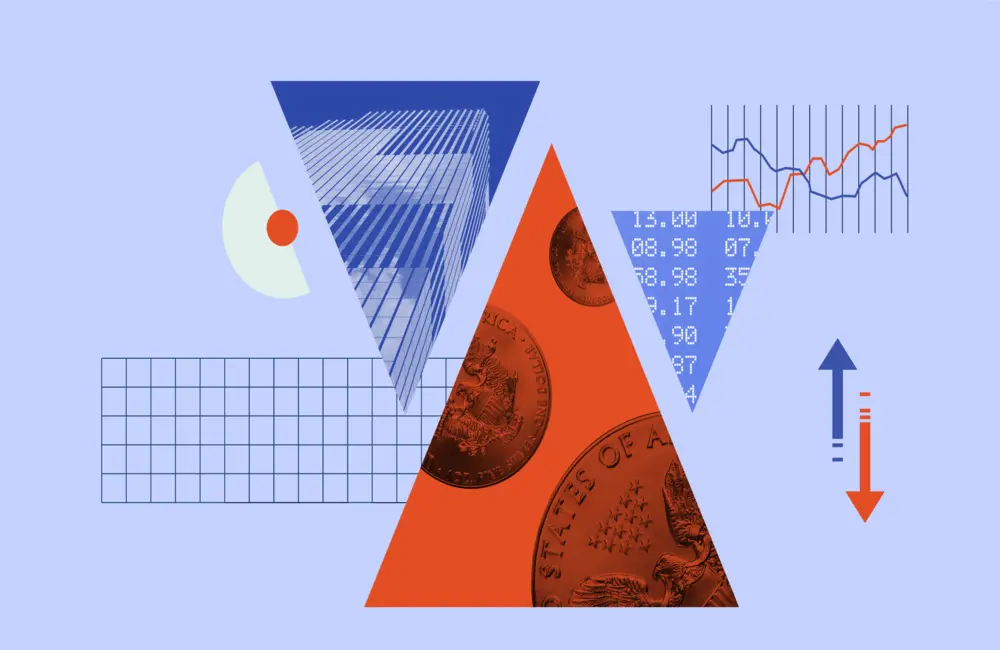The first to take a hit were the most-speculative securities like special-purpose acquisition companies and nascent companies without earnings. Then came the expensive glamour stocks, like Meta Platforms (FB) (formerly Facebook) and Tesla (TSLA). Would the rest of the marketplace line up behind it?
For once my timing turned out not to be intentionally contrarian; as of early March, the S&P 500 was down another 4 percent. And the dominoes continued to fall. Despite rising geopolitical concerns and economic disruption from the Russia-Ukraine war, the stock market is now back on track. The index now trades a bit above the level on the day my article appeared.
That kind of behaviour, of course, mystifies noninvestors. And the stock market sometimes even rejoices in what Main Street regards as bad news, like climbing unemployment (which is good for stocks, since it makes it less likely that the Federal Reserve will raise interest rates), but it also looks ahead and to some extent alerts people to future events, which bewitches those trained to think only of the present. In 2020, for instance, the US stock market bottomed on April 7, just one month after the arrival of the novel coronavirus and long before the economy experienced the brunt of its impact.
The current mini-rally, however, has been difficult even for investment professionals to explain. It would be one thing if this selloff in stocks had happened on the back of one — an anticipated Russian invasion, for example. But that clearly was not so. The selloff kicked off well before Russian-Ukraine relations tanked. The war also was not a forgone conclusion. In a poll conducted in January 2022, 56 percent of foreign-policy experts forecasted that over the next 12 months Russia would attack Ukraine, and 44 percent either demurred or were unsure. The attack couldn’t have been fully priced into stocks.
The expert’s view
Mohamed El-Erian, former Pimco CEO, now president of Queens’ College, Cambridge, attempts to unravel this puzzle in a recent Financial Times column. El-Erian describes a moment from “Shakespeare in Love,” when a theater owner observes that while his business perpetually flirts with catastrophe, “strangely enough it all turns out well.” When asked why that is, he answers, “I have no idea, it’s a mystery.”
And as a researcher rather than artist, El-Erian immediately tries to figure out the mystery that stares him in the face, which is why stocks have found their footing. One reason, he writes, is the resilience of the US economy. Yes, inflation has skyrocketed, and that’s not good for equity prices. In contrast, US corporate profits grew 26% in the fourth quarter of 2021, year-over-year, as consumer demand held up. (Though corporations quite understandably have an aversion to paying high wages, better wages do boost demand for their products and services.)
Another is that the world’s financial system is not stressed despite inflation, commodities shortages and sanctions on Russia. El-Erian goes on to cite Goldman Sachs’ Financial Conditions Index, which looks at global interest rates, credit spreads, exchange rates and equity valuations to decide whether money is relatively easy or relatively tight. Though trending up sharply since its summer 2020 levels, when central banks were very accommodative, that index is still only a tad above its 10-year average. It is not a sign of a financial crisis.
His ultimate justification is the old canard that stocks may be horrible, but other investments are even worse. “[Equities] appear less dirty than the guaranteed negative real return on cash as inflation is high; highly volatile commodities and cryptocurrencies; and bonds that are still exposed to further losses.” (He is making a point about cryptocurrencies—bitcoin doubled from July to November and then tumbled 35 percent.) After all, folks have to invest somewhere.
Looking forward
This kind of analysis is purely retrospective. That is an observation, not a complaint. Understanding why the financial markets behaved the way they did forestalls hasty decision-making. To be clear, I would say the greatest benefit from studying financial history is not so you can know the best-performing assets—you can probably figure that out in a hurry—but rather that you can develop a tolerance for the market’s hiccups. Better to be reflective than angry, afraid, and confused.
But what El-Erian does is to end his diagnosis with a prescription: “Better than to continue to bet heavily” that the stock market will overcome its obstacles, as the stock market, like the theater business, will somehow sail through its difficulties, “it would be wise to take advantage of the strength of equities and take some chips off the table.” Where exactly those monies should go, El-Erian does not say, other than suggesting private equities to anyone who can afford that sort of thing. By default, retail investors should be sitting on cash.
I submit that this advice does not logically follow from El-Erian’s earlier argument. Equities are constantly up against riling headwinds, he noted, yet they tend to find a way to push higher anyway, thus sapping the expectations of modern-day witnesses. El-Erian himself has been among the observers. At the early stages of the Russia-Ukraine conflict, he, like the rest of us, wondered what that would do to world markets. He now possesses that answer.
But he doesn’t have any idea about what will come after. So when El-Erian warns today’s investors to lighten their stock holdings, he cannot be certain they will be able to reinvest their proceeds at cheaper prices. Maybe stocks already had their lows in 2022. If so, the holders of cash in their pockets may get stuck in a “bear trap” by remaining chronically underinvested, waiting for the stock-market sale that never comes.
Conclusion
Some investors do have too much equity, courtesy of the past decade’s rise in stock prices. Those shareholders would be wise to heed El-Erian’s suggestion that they cut back their portfolios. But those trades should be strategic, not tactical. As El-Erian himself notes, the stock market’s secrets reveal themselves only in hindsight. Knowing what has gone before is a useful way to avoid making future investment mistakes, but that kind of knowledge almost never gives us investment wins.























